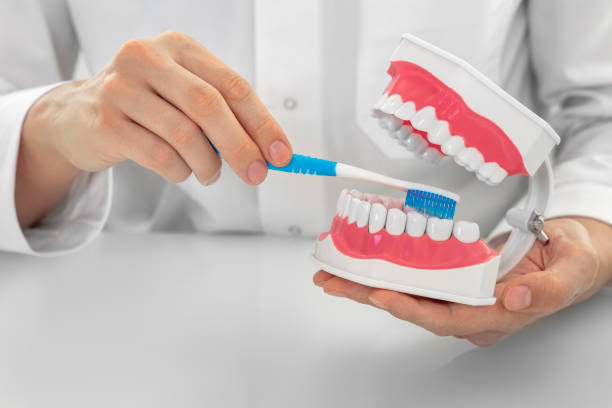Teeth Cleaning: How to Keep Your Teeth Healthy

Teeth Cleaning: How to Keep Your Teeth Healthy
A bright, healthy smile is more than just an aesthetic feature, it’s a reflection of good oral hygiene and overall well-being. Proper teeth cleaning plays a crucial role in preventing cavities, gum disease, and bad breath while also boosting self-confidence. Many people underestimate the importance of a thorough oral care routine, but taking small, consistent steps daily can lead to long-term dental health.
This guide will explore effective teeth cleaning techniques, professional cleaning benefits, and essential habits to maintain a strong and beautiful smile.
Why Is Teeth Cleaning Important?
Regular teeth cleaning removes plaque, bacteria, and food particles that accumulate over time. Without proper cleaning, plaque hardens into tartar, leading to gum disease and other dental issues.
Here are some key benefits of keeping your teeth clean:
- Prevents cavities and tooth decay
- Reduces the risk of gum disease
- Eliminates bad breath
- Enhances overall oral health
- Contributes to a brighter smile
Daily Teeth Cleaning Routine
A consistent oral hygiene routine is crucial for maintaining healthy teeth and gums. Here’s what your daily teeth cleaning routine should include:
1. Brushing Techniques for Healthy Teeth
- Brush your teeth at least twice a day for two minutes each time.
- Use a soft-bristled toothbrush and fluoride toothpaste.
- Hold your toothbrush at a 45-degree angle and use gentle circular motions.
- Don’t forget to brush your tongue to remove bacteria and prevent bad breath.
2. Importance of Flossing Daily
- Floss at least once a day to remove plaque between teeth.
- Use about 18 inches of floss, wrapping it around your fingers for better control.
- Slide the floss gently between teeth and curve it around each tooth to clean thoroughly.
3. Rinsing with Mouthwash
- Use an antibacterial mouthwash to kill bacteria and freshen breath.
- Avoid mouthwashes with alcohol, as they can dry out your mouth.
- Swish for at least 30 seconds after brushing and flossing.
4. Staying Hydrated
- Drinking water helps wash away food particles and bacteria.
- It also prevents dry mouth, which can lead to tooth decay.
Professional Teeth Cleaning: Why It’s Essential
Even with the best oral hygiene routine, professional teeth cleaning is necessary to maintain optimal dental health. Dentists recommend getting your teeth professionally cleaned at least twice a year.
What Happens During a Professional Teeth Cleaning?
- Examination: The dentist or hygienist checks for cavities, gum disease, and other oral issues.
- Plaque and Tartar Removal: Special tools are used to remove hardened plaque (tartar) that cannot be eliminated with regular brushing.
- Deep Cleaning & Polishing: Your teeth are polished to remove stains and smoothen the surface.
- Fluoride Treatment: A fluoride application helps strengthen enamel and prevent cavities.
How Often Should You Get a Professional Cleaning?
Most dentists recommend a professional teeth cleaning every six months. However, if you have gum disease or other oral health issues, more frequent visits may be necessary.
Best Practices for Long-Term Oral Health
Beyond daily oral care and professional cleanings, there are additional steps you can take to keep your teeth healthy:
1. Maintain a Healthy Diet
- Eat calcium-rich foods like dairy products, leafy greens, and almonds to strengthen teeth.
- Avoid sugary snacks and beverages that contribute to cavities.
- Incorporate crunchy fruits and vegetables like apples and carrots to help clean teeth naturally.
2. Avoid Harmful Habits
- Do not smoke or use tobacco products, as they stain teeth and cause gum disease.
- Avoid excessive coffee, tea, and red wine consumption to prevent discoloration.
- Do not use your teeth to open bottles or tear packaging, as this can lead to damage.
3. Replace Your Toothbrush Regularly
- Change your toothbrush or brush head every 3-4 months or sooner if the bristles become frayed.
- Using an old toothbrush is less effective in removing plaque and bacteria.
4. Schedule Regular Dental Checkups
- Visit your dentist at least twice a year for comprehensive exams and cleanings.
- Early detection of dental issues can prevent more serious problems in the future.
Common Teeth Cleaning Myths Debunked
There are many misconceptions about teeth cleaning that can lead to poor oral health. Let’s clear up some of the most common myths:
| Myth | Truth |
| Brushing harder cleans better | Brushing too hard can damage enamel and gums. Use gentle circular motions. |
| Flossing isn’t necessary if you brush well | Flossing removes plaque and food between teeth that brushing can’t reach. |
| Mouthwash can replace brushing | Mouthwash is a supplement to brushing, not a substitute. |
| Whitening toothpaste damages enamel | Most whitening toothpaste is safe but should be used as directed. |
Conclusion
Taking care of your teeth should be a lifelong priority, as a healthy mouth contributes to a healthier body. By following a proper teeth cleaning routine, eating a balanced diet, and scheduling professional cleanings, you can enjoy a radiant smile for years to come. Oral health is an investment in your overall well-being, so don’t wait—start improving your dental care routine today.
For more expert advice and professional dental services, visit Ramlaoui DDS and schedule your next appointment. Your smile deserves the best care!

